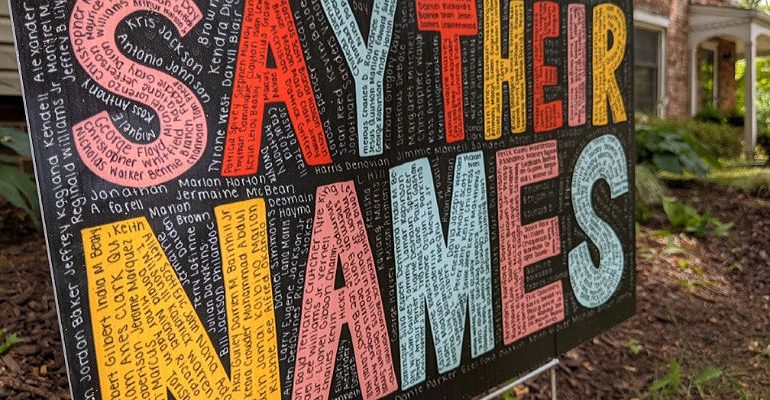George Floyd and Trevon Martin are household names for a tragic reason. These men were killed by police. Unfortunately, there are many more black men and women who have died at the hands of police brutality. They don’t make the news. Their families and communities are left decimated, but the world moves on, never understanding the full scope of the tragedy. Say Their Names is working to change that.
Police Shooting Statistics
It’s difficult to determine just how many black men and women have been killed by police. There are no official record-keeping requirements for fatal shootings. In recent years, the media have taken up the cause, beginning to review records and compiling statistics. What they’ve found is concerning. More concerning is that without a standardized reporting system, the true toll may be even higher.
Mapping Police Violence discovered that African Americans were 3 times more likely to be killed by police when the statistics were adjusted by population. Few families receive any sort of justice in these cases. Regardless of race, police shootings led to charges being filed against an officer just 2.6%, with only 1% getting a conviction.
Since 2017, between 209-236 African Americans are killed by police each year. There were 7 deaths in the first month of 2021. Since 2015, there have been at least 135 deaths of unarmed African Americans by police.
Startlingly, some of the officers involved in these shootings were also involved in other shootings. At least 15 officers who shot an unarmed African American had prior shootings on their record.
Despite what we see on TV, police shootings are very rare. Many officers go their entire career without the use of deadly force, and some never even pull their firearms. Police are, or should be, taught to deescalate the situation or use nonlethal force when necessary.
Over 24 of the officers involved in these shootings had multiple citizen complaints of excessive force as well. One officer had 84 complaints, but never received a violation.
Get Louder
The Say Their Names movement aims to raise awareness of black deaths at the hands of police, but change requires action as the result of awareness. The troubling trend suggests that police are not policing themselves, which raises the question, what can we, as a society and individuals, do? This is a national issue, but change often starts on the local level. Sheriffs are elected officials. Police chiefs are appointed by the local legislature.
These are the leaders of the local law enforcement community. They dictate policies and procedures, hire and fire officers, and oversee the training required to be an officer. Nothing will bring back the lives lost to police violence. Nothing will ease the pain of the families left behind. However, change can prevent future tragedies.













Comments